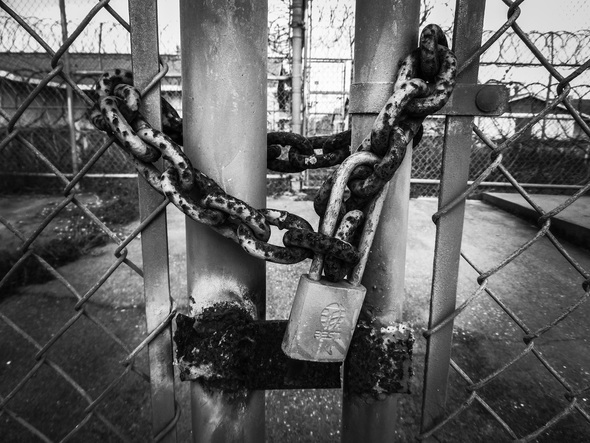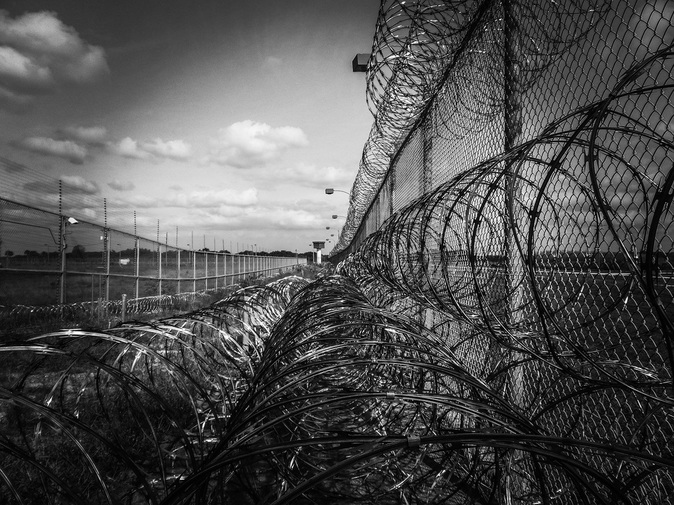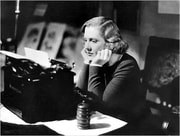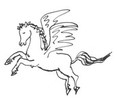|
Meet an unsung hero. In my research project on joy I encountered Jérémie Regard, a French blacksmith who was in 1944 arrested and incarcerated in one of the places which came close to hell on earth: The concentration camp Buchenwald. It is Jacques Lusseyran, a blind author, partisan for the French resistance and co-prisoner, who honors him in his book „Life begins today“ (published in Paris 1959).
„In the middle of block 57 Jérémie found joy. He found it in times of day when we all were only terrified … What kind of joy was this? I would like to share a few observations: The joy to be alive, in this moment, in the next moment … It was the joy to discover that joy exists, that it is in us, as life is, that joy is unconditional and that no condition - even the worst - can ever destroy joy." Jérémie Regard is a tower of serenity, calm and comfort to the 1000 people who are squeezed into a shack for 400. People even form a small aisle when he passes through speaking words of encouragement. The blind author senses all this and can write about it. He feels his way into the mystery of Jérémie: „Whereever he appeared, one could breathe. The breath of Life touched my face. It was probably not a miracle, but a certain effect only from him. When Jérémie wandered through the block we could breathe. In my memory I can follow the light and pure way he took through the crowd. At that time I understood not who he was, but I have seen it. And this image is a light in me like a light-tower. I didn’t know who he was, because he didn’t talk about it: He belonged to the Christian Science movement. He had even been to the US to meet with other brothers and sisters in his faith, a truly remarkable event for a blacksmith from Northern France; it caught my attention, but didn’t help me much to learn more. It only increased the mystery; that was all. Jérémie meant something, without his history." The book dedicates an entire chapter in elegant French, to Jérémie Regard. The author being a seeker, a thinker, and someone who finds something, asks himself many times where the joy came from that Jérémie shared with the others daily, the joy right in the middle of block 57, where every one was scared. A joy which helped others, a joy to which everyone could relate to, even when being „a few steps away from hell“. One explanation that the author comes up with is, that he observes that Jérémie doesn’t dream or transform his fear into wishful thinking as everyone else does - shutting their eyes to the reality in front of them: How great it would be to be free, how wonderful it would be to somewhere else. Daydreaming as a means of escape. Jérémie never did that. He lived right in the now and compared this present to any other „normal“ experience people would have had outside the camp. How could this be? How did Jérémie do that? „What I call supernatural, was the complete breakaway from the ordinary, which he had committed. He had distanced himself completely from the habitual custom after which we call any mischief „fate" or „suffering", from the ordinary urge to hate, to call for revenge or - a lesser but still undisputable form of hate - to protest, in the habitual egocentric frenzy, in which we believe to be innocent every time we suffer. He had been escaped from the net of inevitable reflexes, and it is only this fact - not good health, not even perfect health, if even existing - which can explain his person. He had reached his centre and had found there the supernatural or - if you dislike that word - what’s essential, what is not depending upon circumstances, what exists at every time and in every place, in pain and in joy. He had found the fountain of Life. And at the same time he was enveloped in a cloak of transparency and purity. I have used the word „supernatural“, because it seemed to me that Jérémie’s acting was a religious act: The discovery that God is here, and that to find Him is possible. That was „the good news“ that Jérémie proclaimed in his modest way." The author continues to speak about the place Jérémie has in his memory: „When I speak about him, I must speak about Buchenwald. But don’t be fooled: Jérémie was never there. I have encountered him in person, yes, he had tatooted into his arm a number for a prisoner, yes, and others remember him as we’ll. But he was not there is in this exclusive, individual way, which we connect with the sentence „he was in Buchenwald“. The experience of the concentration camp was to him something like a random event: It couldn't touch his centre." It is a special grace of God that Jérémie Regard passed on a few days before he was scheduled to leave for the gas chamber. The author finishes his praise for Jérémie Regard, who changed his life for the better and helped him survive: „The whole secret and the whole power of those men, who serve another cause other than their own provisory existence, lies in the fact that you cannot avoid them."
Christine
19/9/2015 04:32:41 pm
Thank you
Marie Longpré-Adams
20/9/2015 05:46:40 am
This is a deeply moving and inspiring account. I needed to read it twice to let it sink in!
Anne Cooling
21/9/2015 12:36:18 am
What a beautiful example of the power of Christ and the light that shines within and without from the living Christ in a heart that stays with its peace in the storms of life. Here again Christ stilled the storms and that became his salvation and experience. Thank you for sharing. Comments are closed.
|
Who is writing?
In my work as Christian Science practitioner and writer I draw on listening to God and listening to people. Categories
All
My Archive
October 2023
|





